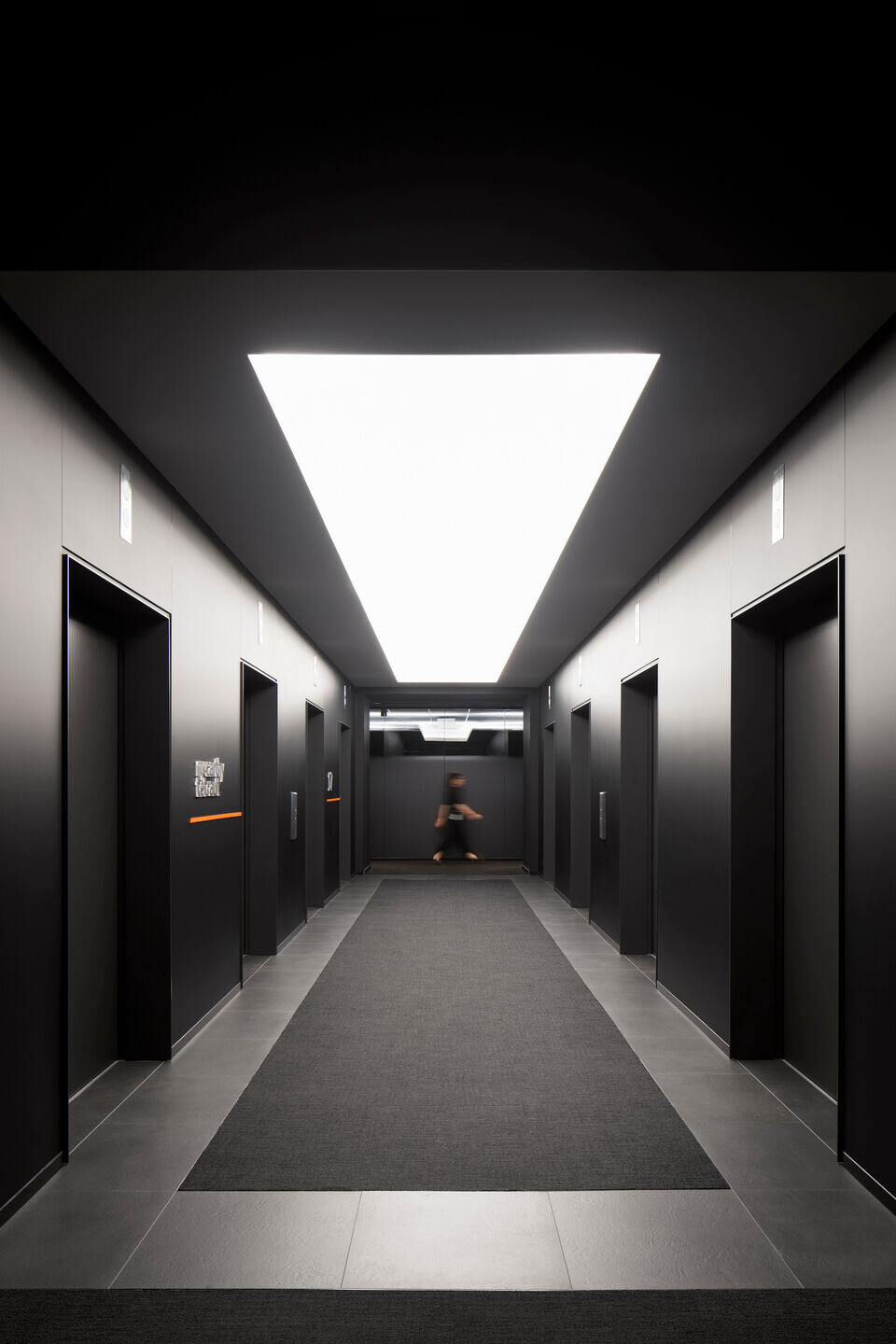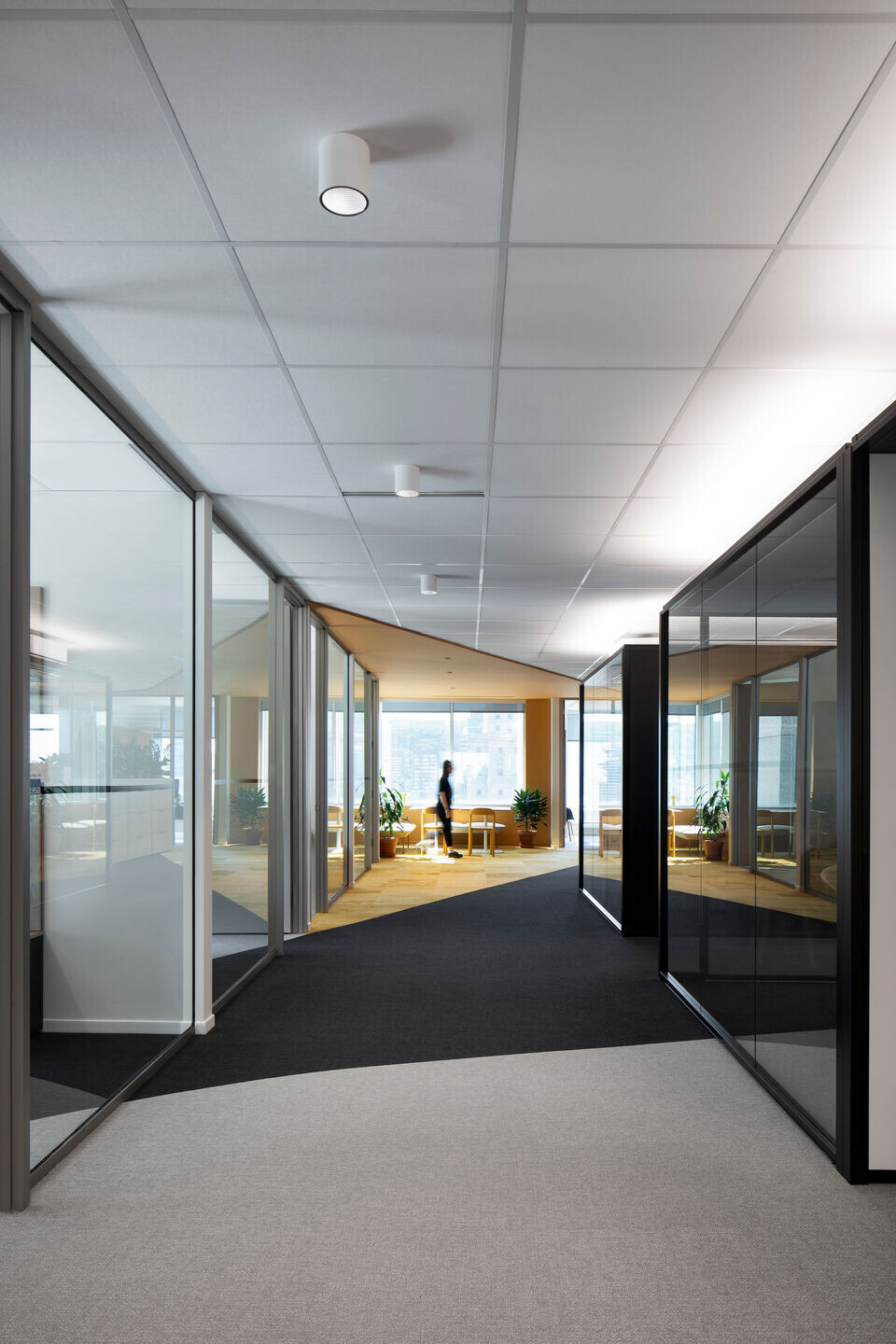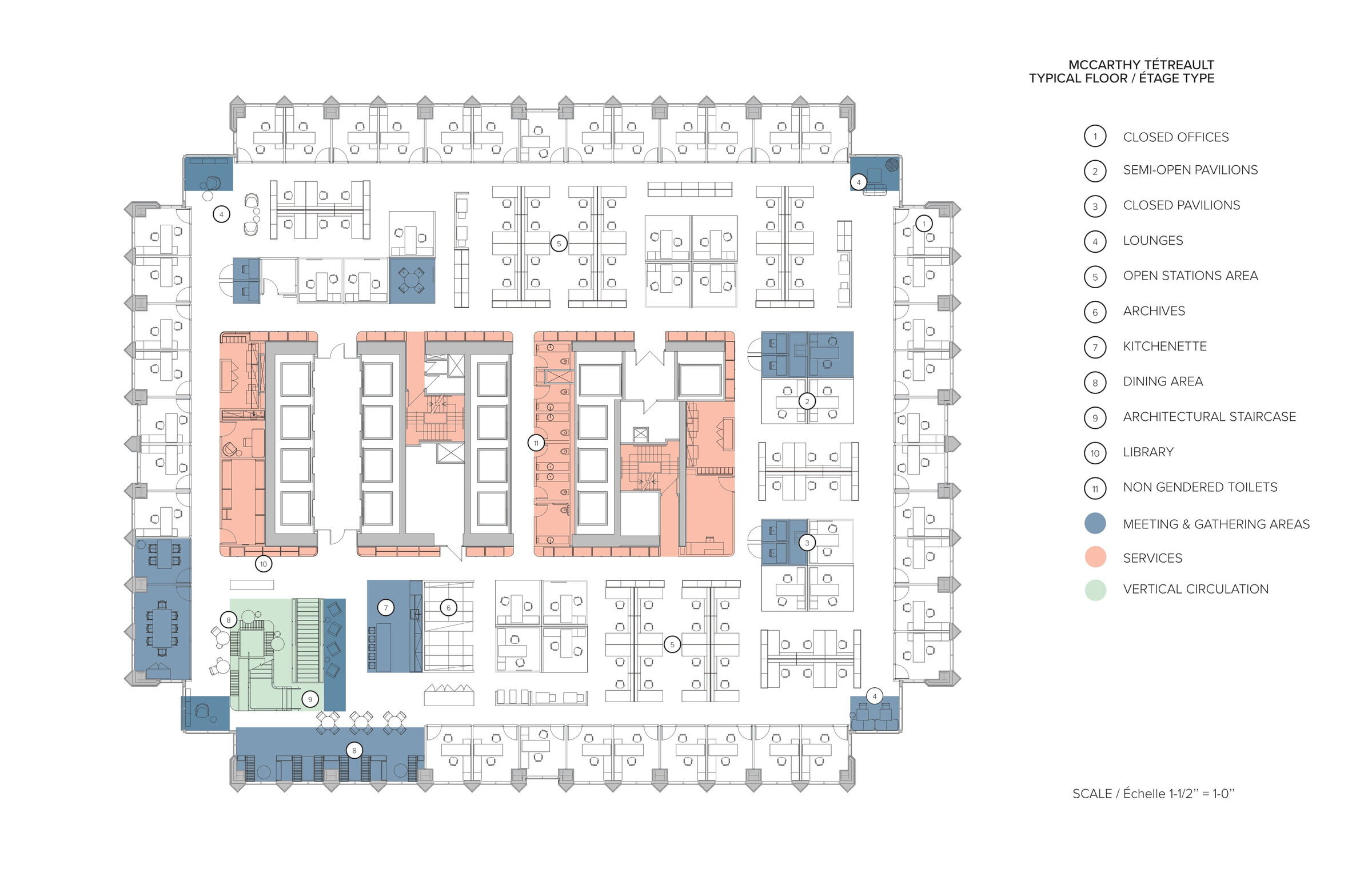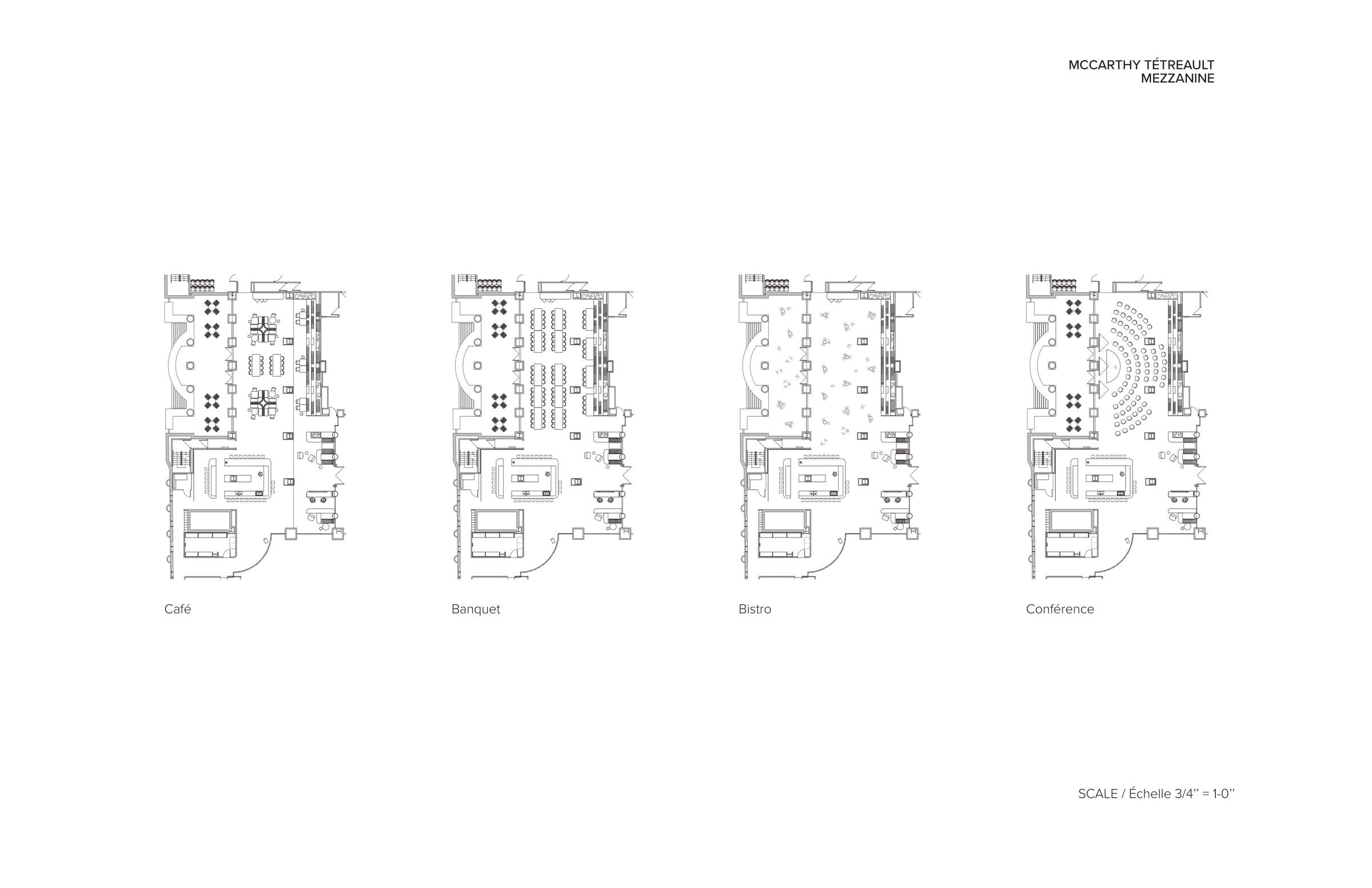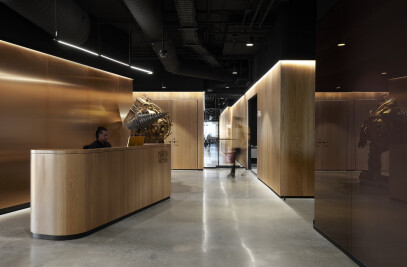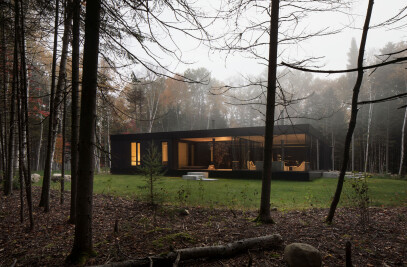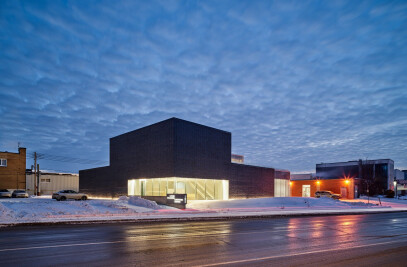BVN Architecture and ACDF Architecture are proud to present their transformative design of new offices for the McCarthy Tétrault law firm, located at 1000 de la Gauchetière in downtown Montreal. After rethinking the existing atypical architecture, the architects have transformed over 100,000 square feet on four floors into open, bright, and nonhierarchical collaborative spaces.
“The project addresses the restructuring and layout of McCarthy Tétrault's offices to respond both to a traditional industry model, but also a desire to reform the image of the law firm as one that is innovative and accessible,” explains Joan Renaud, senior partner at ACDF Architecture.
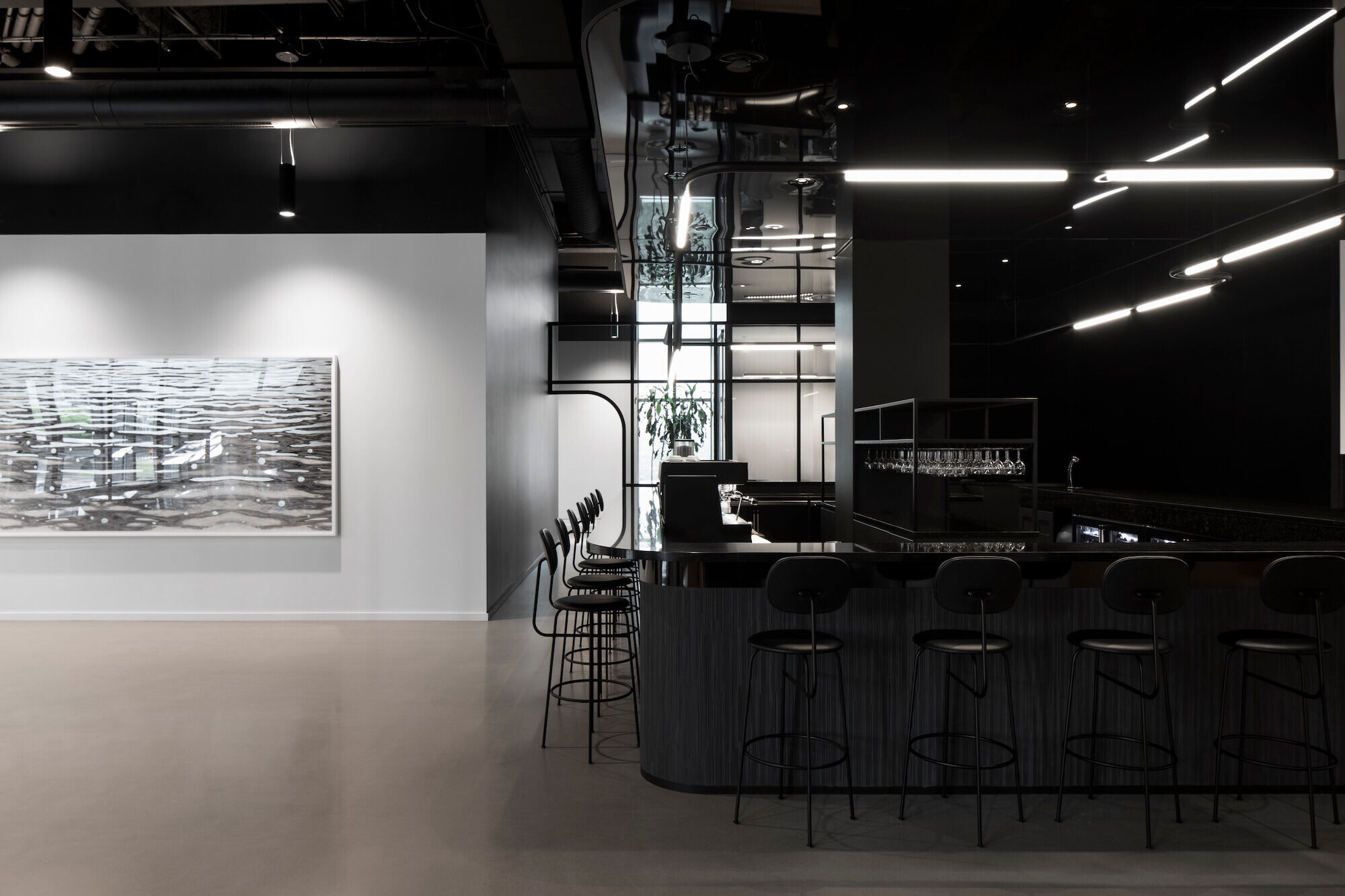
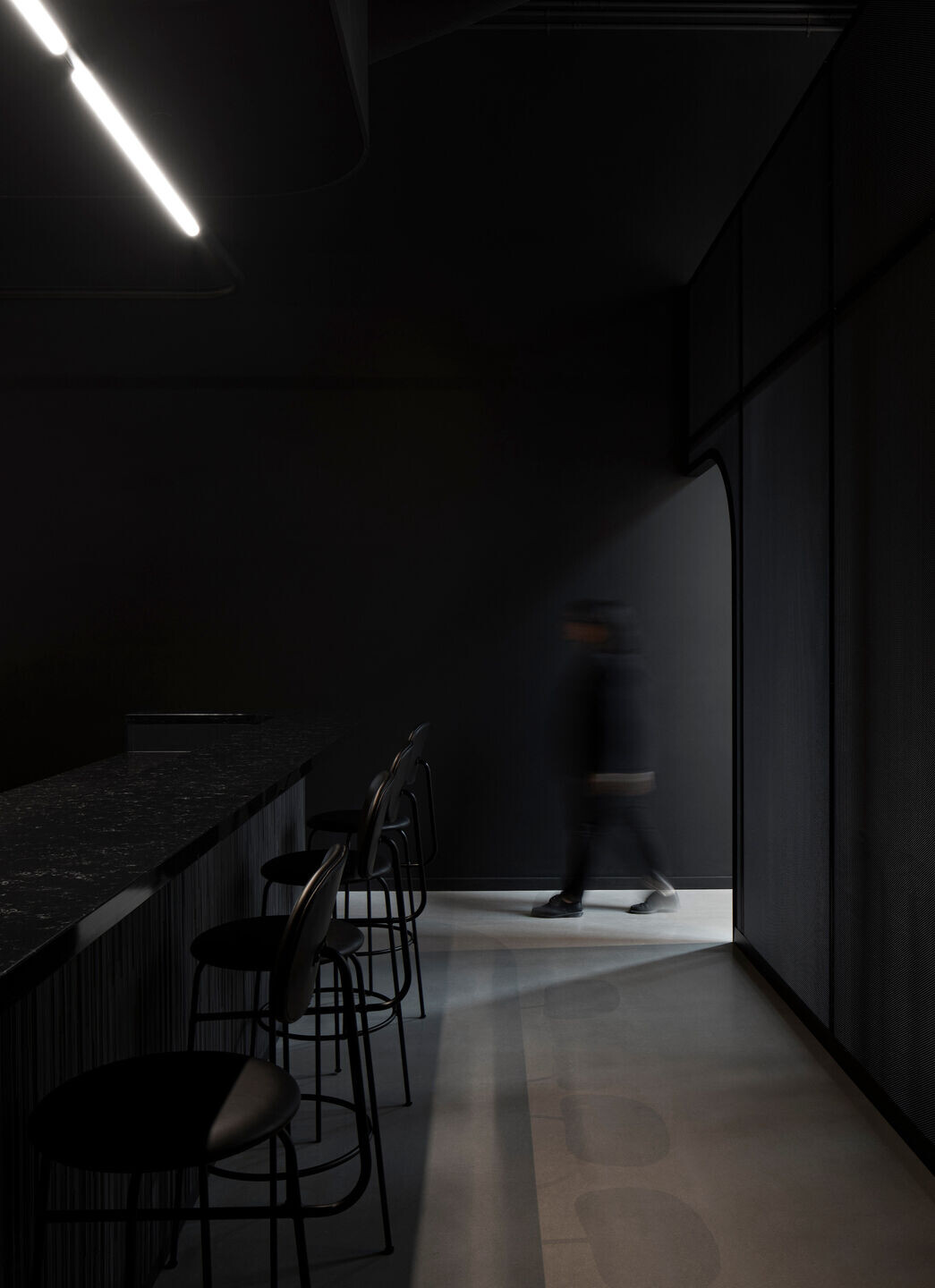
People at the heart of a convivial environment
McCarthy Tétrault, which offers its services nationally and internationally, positions itself as an employer of choice that recognizes human capital as a corporate value. Accordingly, the firm is committed to creating a work and communication space that enables the full realization of its activities, the well-being of its users, and the growth of its fields of expertise.
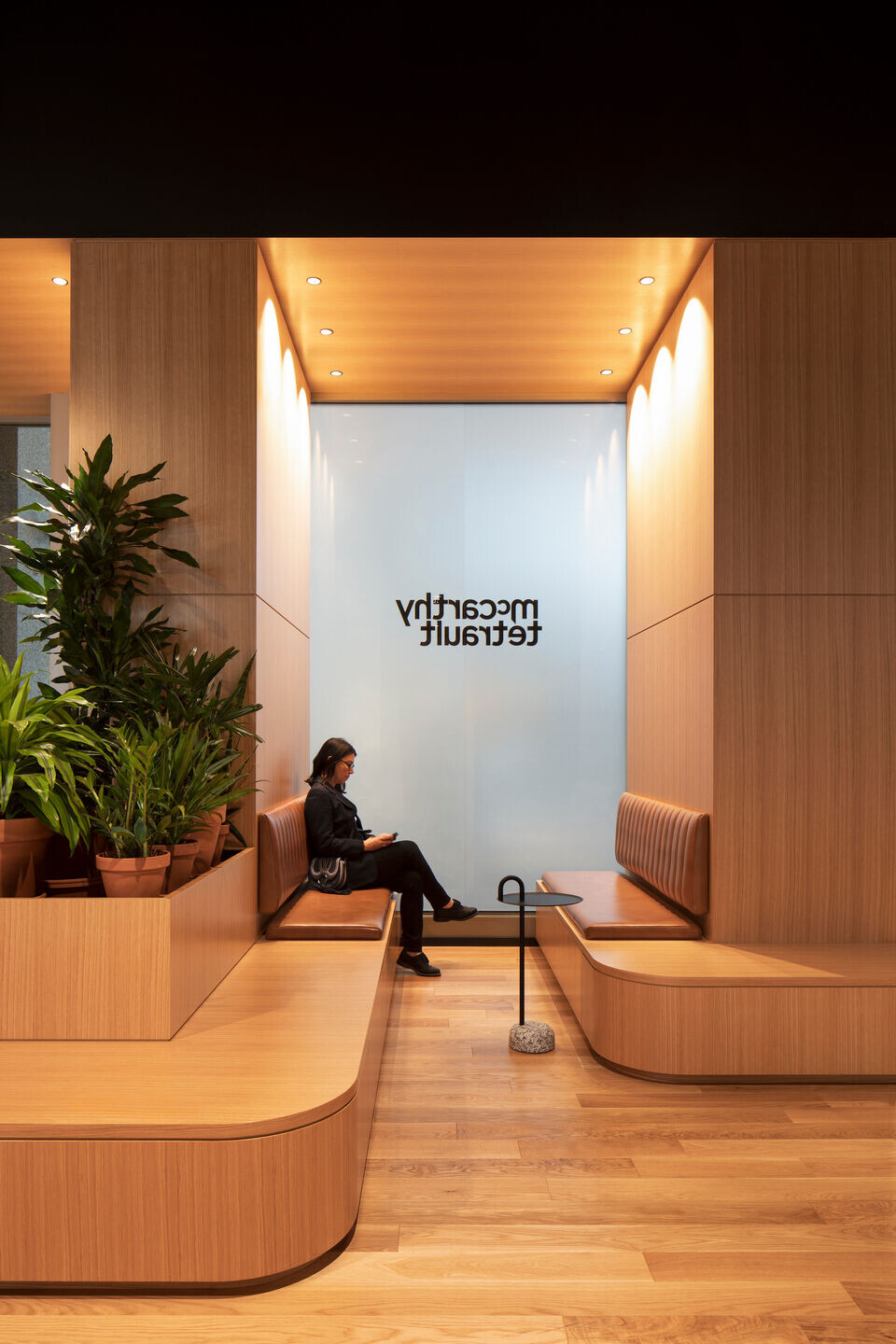
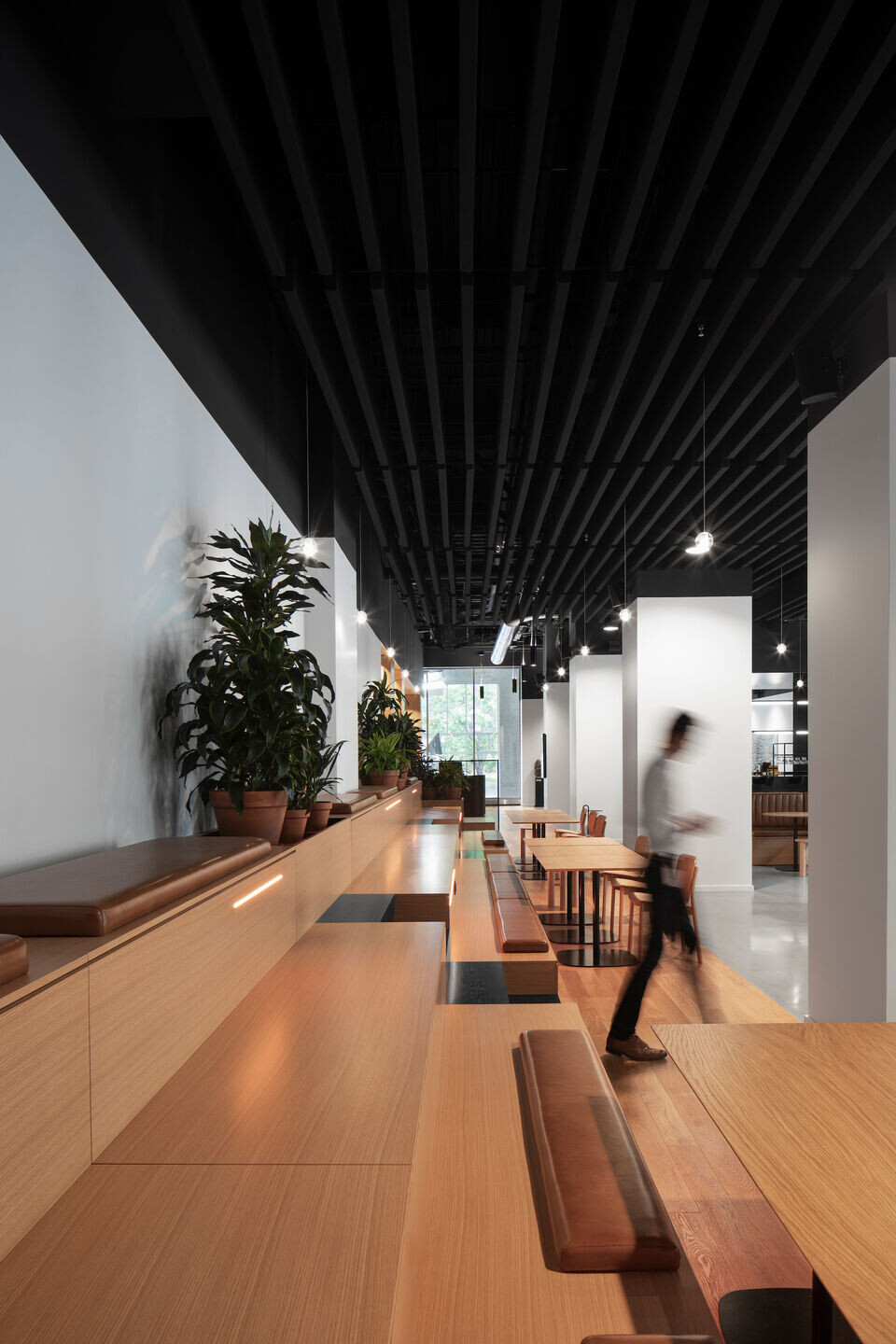
On the mezzanine floor, where the firm's entrance is located, the architects designed a new reception area that enables McCarthy Tétrault to welcome clients and staff around a large central counter, which doubles as a coffee bar for casual or organized meetings and convivial exchanges. Adjacent to the reception area, there is an expansive conference center capable of accommodating more than 300 people, with galleries interspersed for hosting a variety of events.
As a firm renowned for its commitment to providing a welcoming environment for its employees, customers and visitors, it was essential to create a flexible layout that could accommodate traditional meetings, as well as group training and special events.
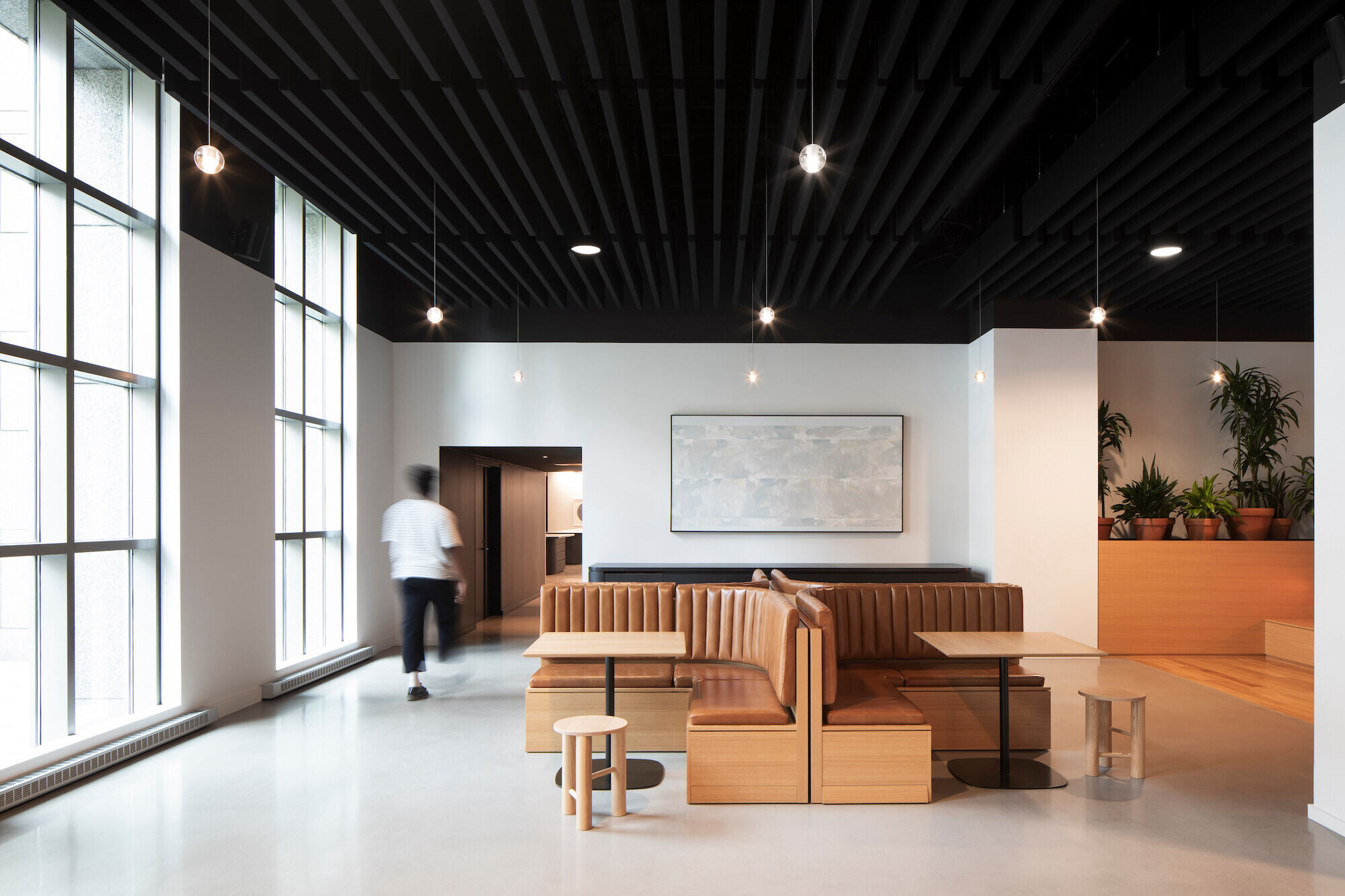
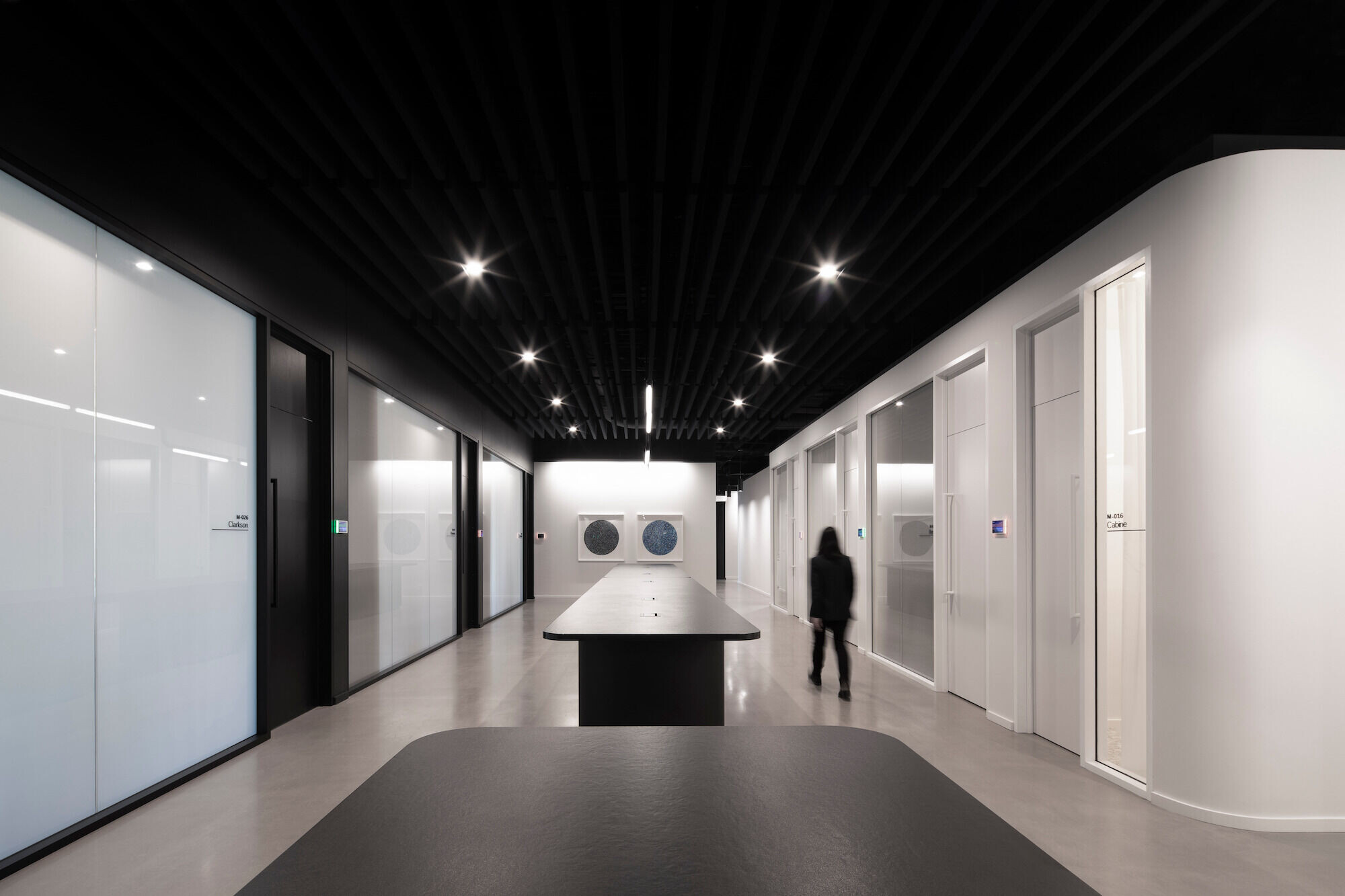
Democratization and collaboration
As a reflection of McCarthy Tétrault's democratic, friendly, and transparent identity, BVN + ACDF’s design infuses accessibility into all of its new office spaces. Designed for both individual and collaborative work, all offices and meeting rooms on the tower's four adjacent floors, commonly referred to as “The McCarthy House”, benefit from standardized ergonomic workstations.
Regardless of the professional hierarchy of the firm’s lawyers, standardized workstations allow for modularity over time. A central architectural staircase allows free circulation and open exchanges between the firm's lawyers, forging a common channel for all. The absence of clients in these areas has made it possible to relax the conventions and requirements of privacy and decorum, while reinforcing the sense of belonging. In that sense, the design encourages and prioritizes work efficiency.
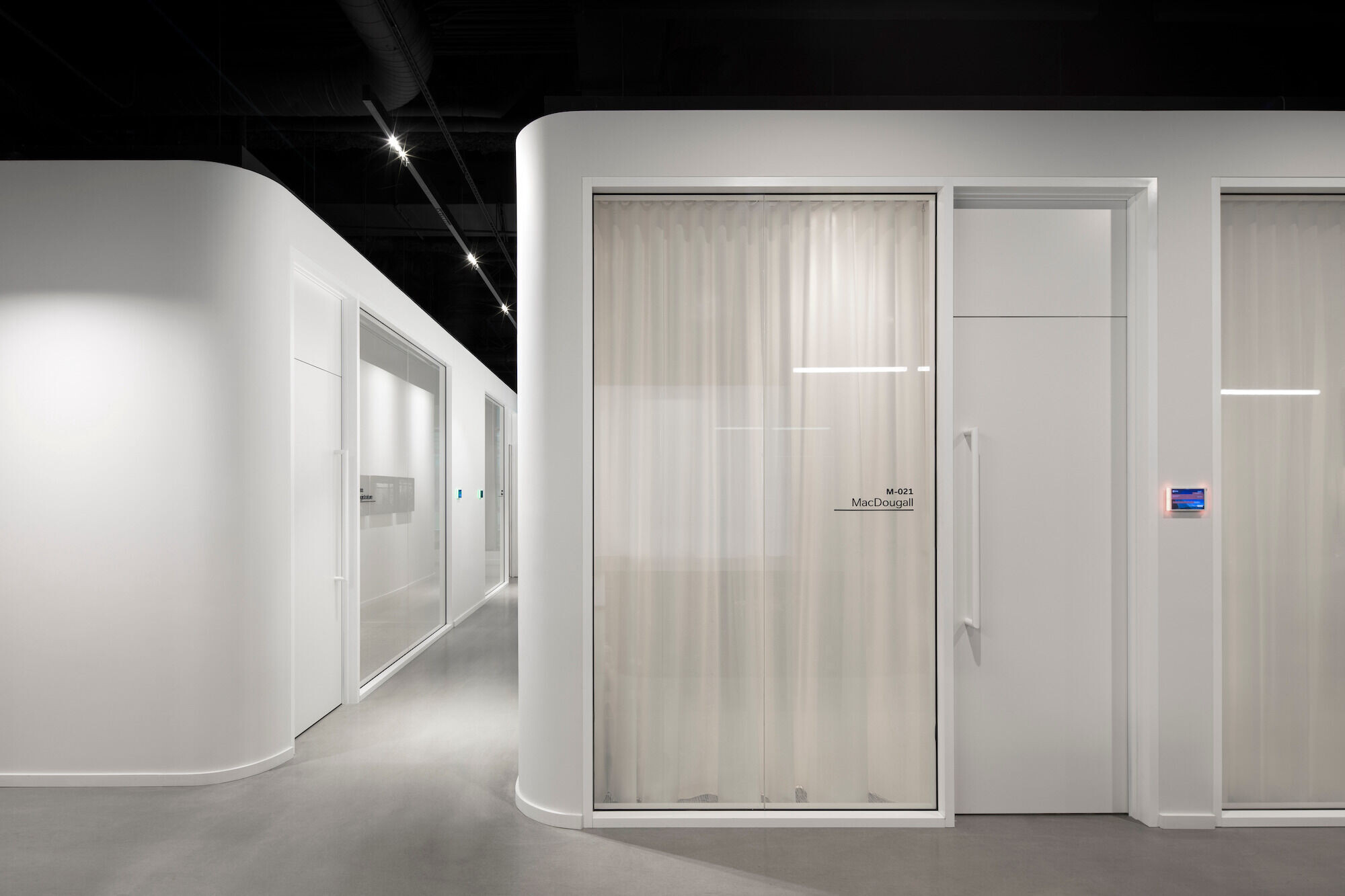
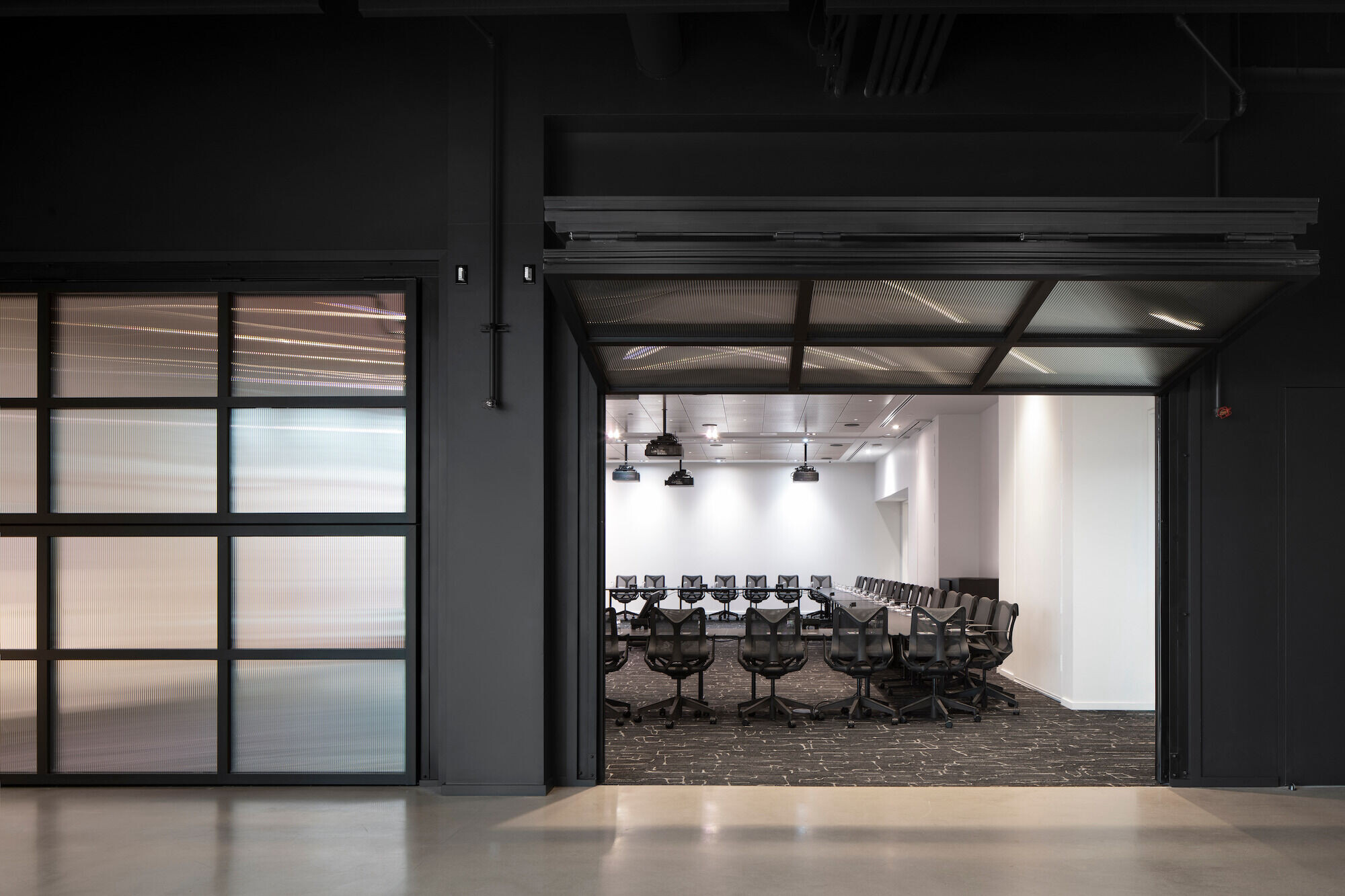
Flexible spaces for greater durability
The new design shifts the paradigms of pre-pandemic IT requirements to a greater focus on dedicated workstations, improved mobility, added flexibility, and more. The spaces enable both individual and team working, long or short term, with access to natural light for all, height-adjustable work surfaces, largely indirect lighting to facilitate reading, the ubiquity of biophilia, and new individual, gender-neutral washrooms.
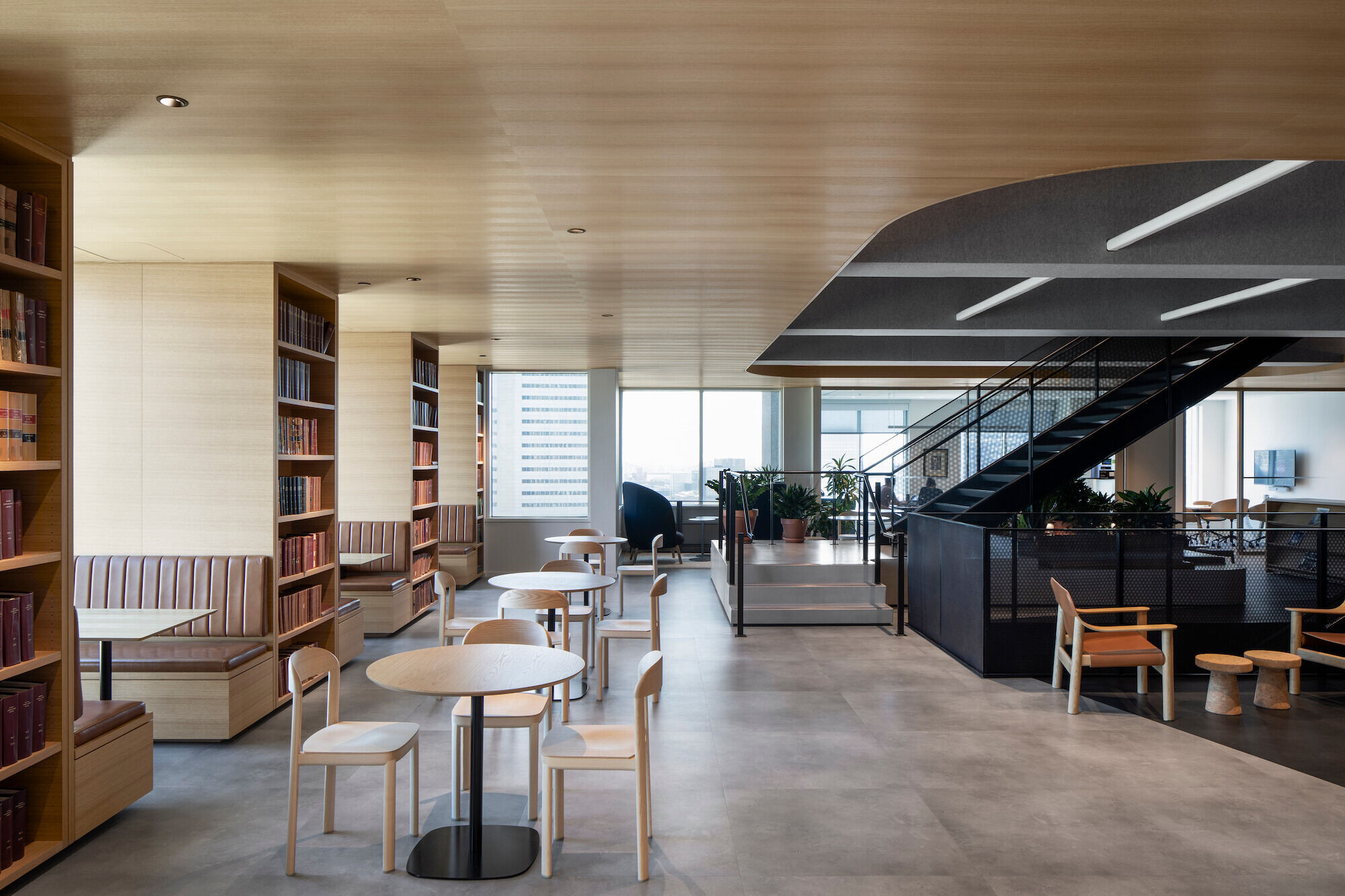
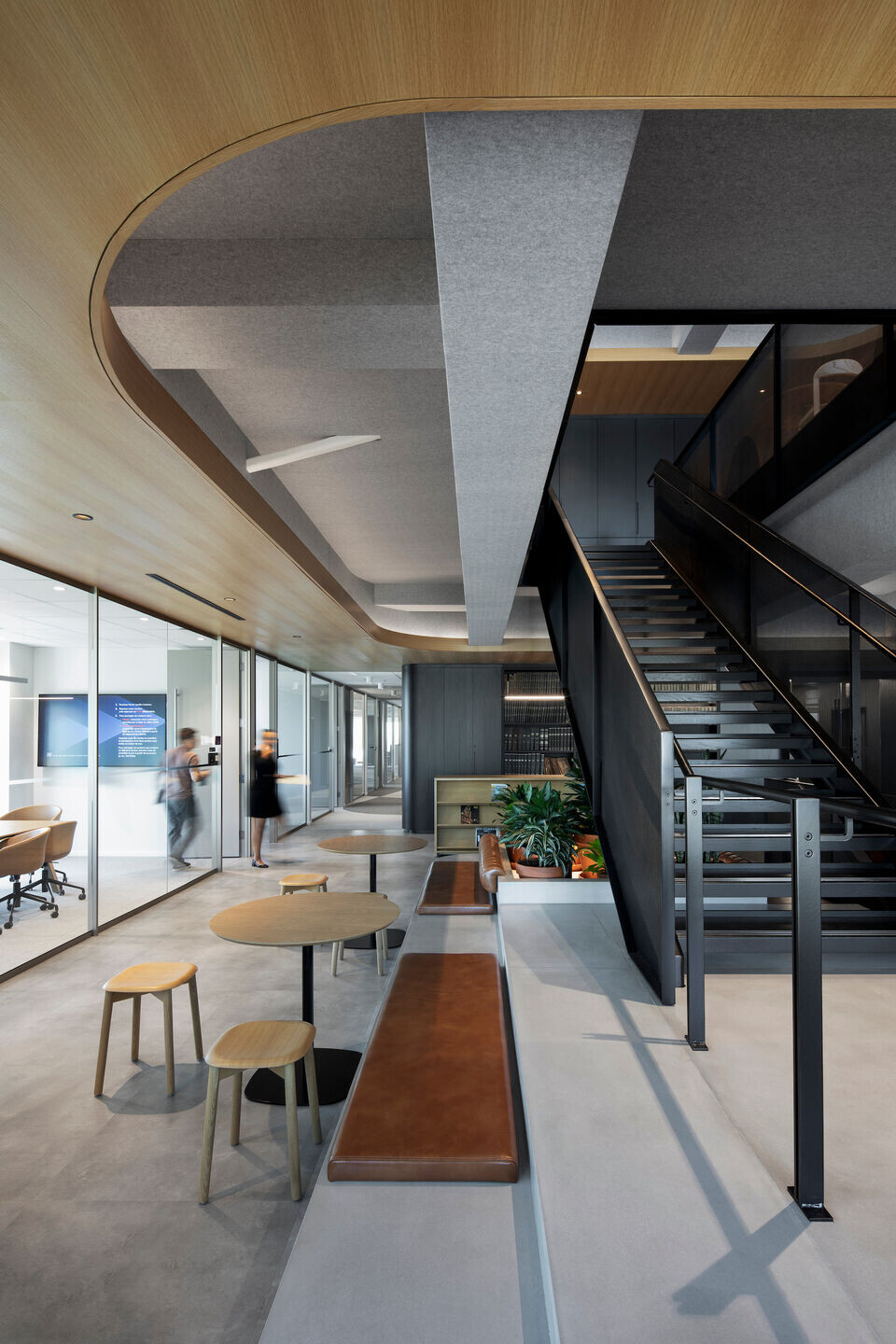
“A series of architectural pavilions have been installed in the work areas that can be closed, opened, or joined together in the future, should the customer's needs evolve,” explains Joan Renaud. “As for the mezzanine, it opens the way to a giant canvas designed to be modulated according to the activities and users of the space.”
To meet the office's functional and social needs, the architects employed a number of technological solutions. Removable walls, liquid crystal glass, recessed projection screens, and intelligent lighting are all part of an integrated technological solution designed to serve the firm's various activities.
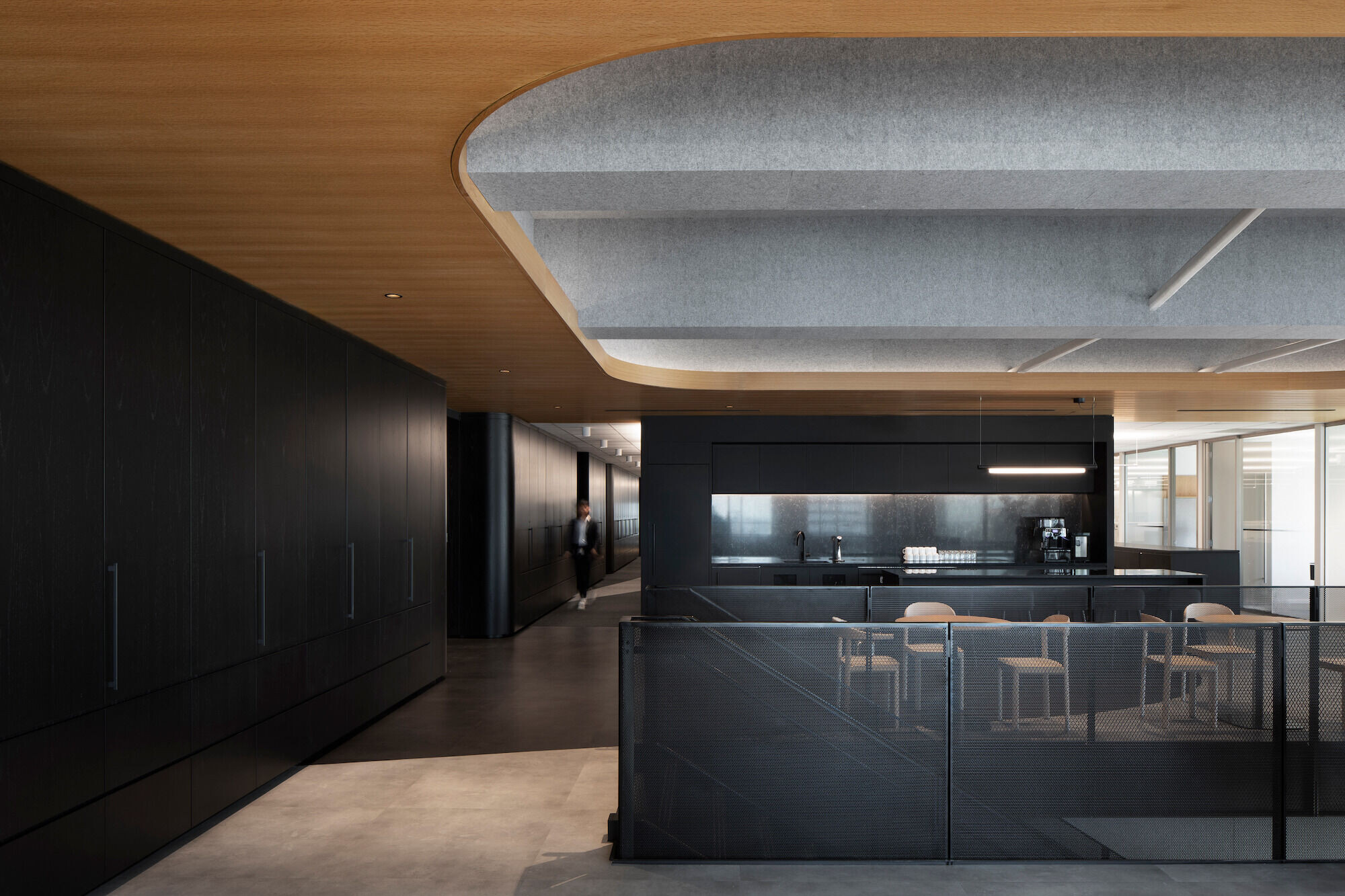
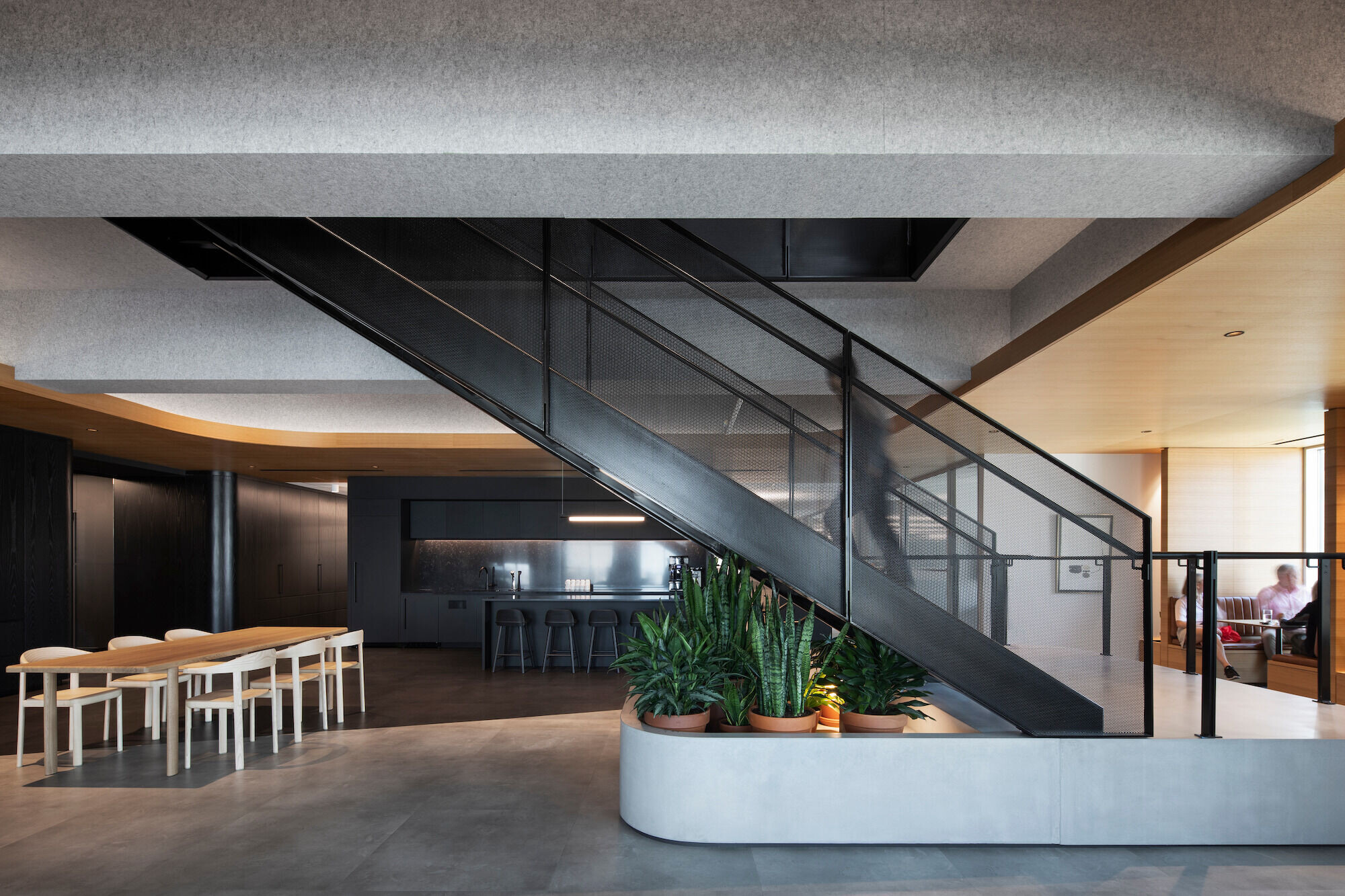
Balancing hospitality and privacy
In a delicate balancing act, the architects focused intensely on lighting, acoustics, privacy, and security, while simultaneously infusing a series of social elements into the design to capture the essence of the renowned firm’s longstanding business approach and reputation.
“This transformation proved to be an ongoing challenge of architecture, engineering, space enhancement, and building compliance, creating the foundations for a new layout that is democratic, user-friendly, and innovative,” concludes Joan Renaud. “We are proud that these avant-garde offices have succeeded in redefining McCarthy Tétrault's Montreal identity and signature.”
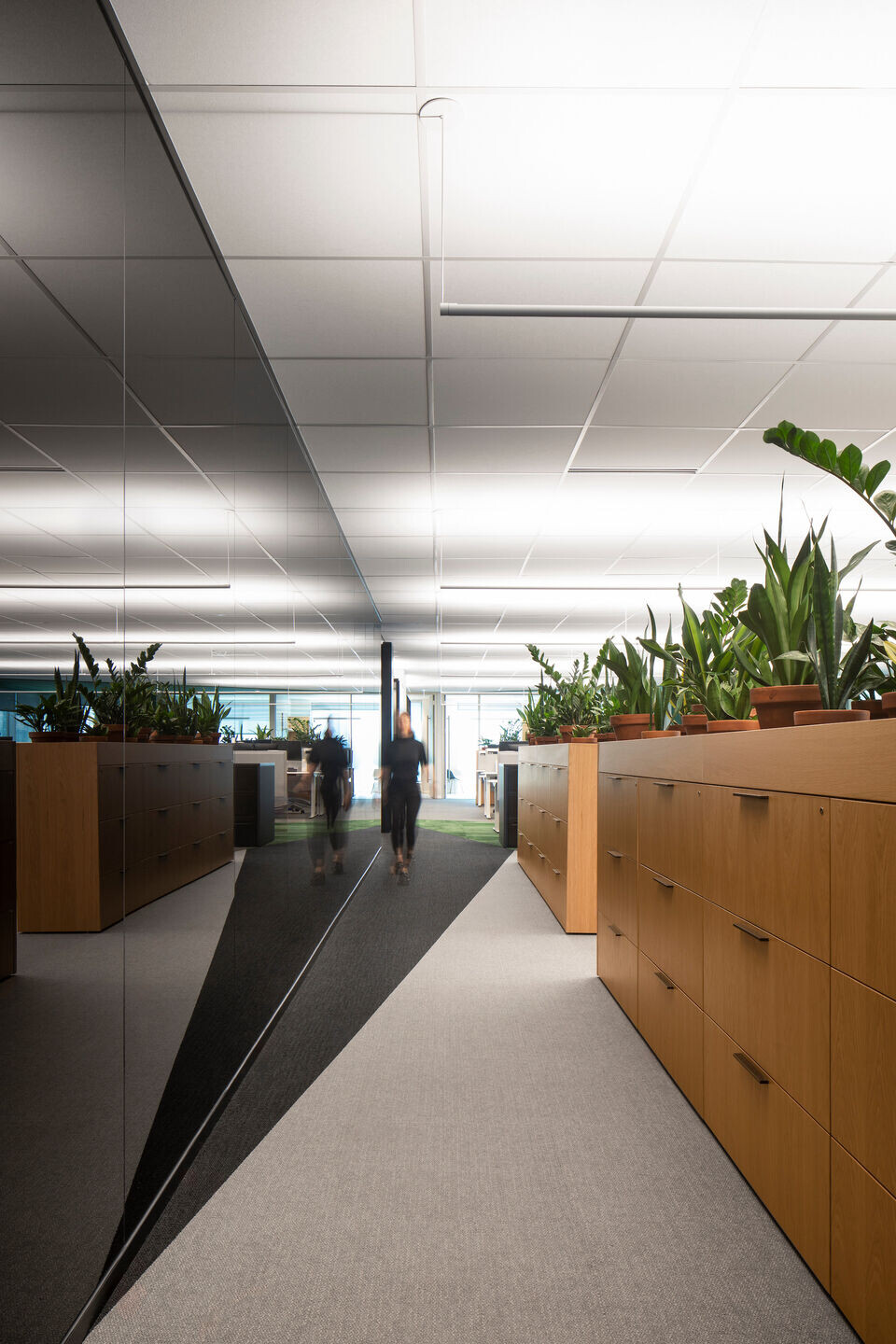
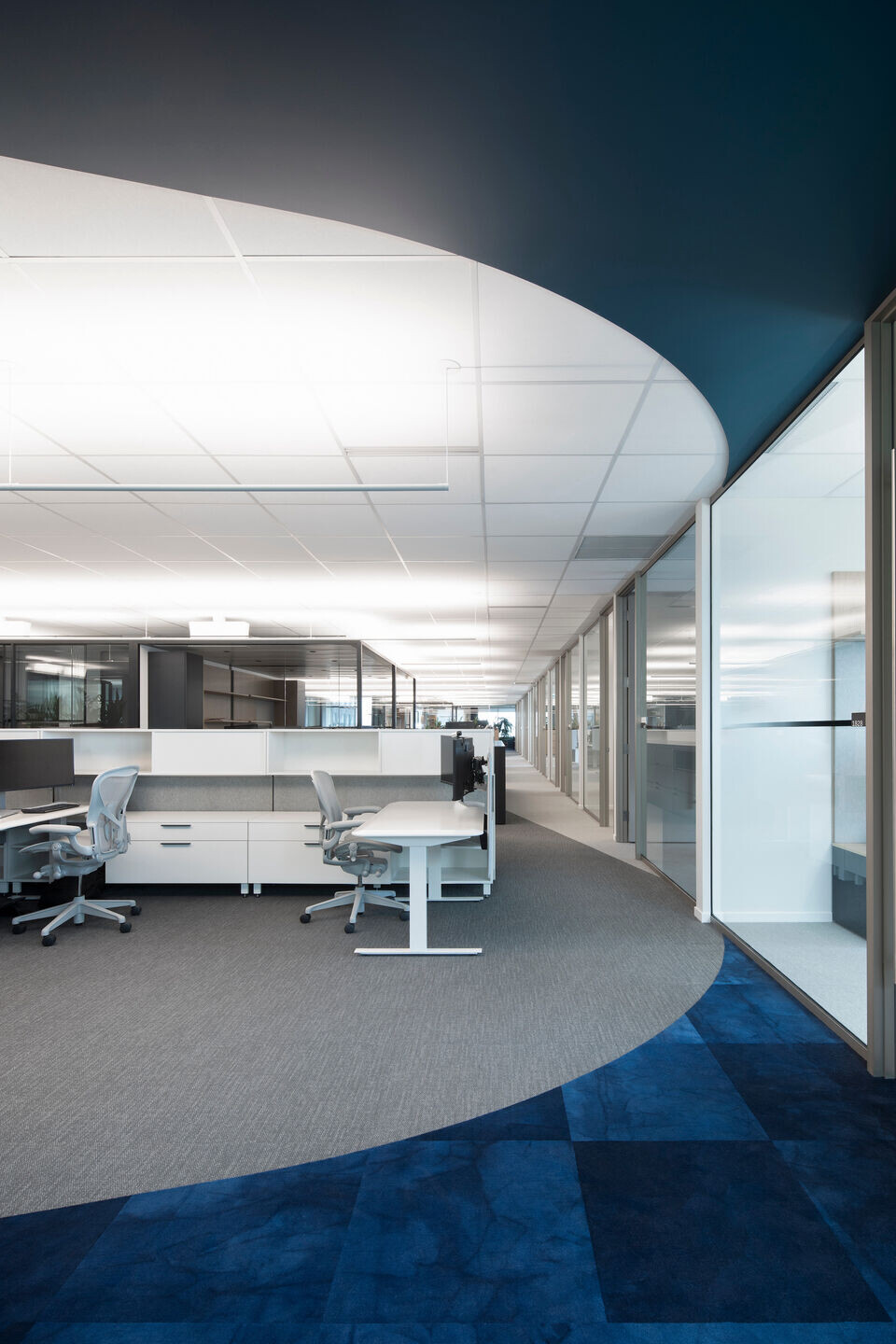
Team:
Architects: ACDF Architecture + BVN Architecture
Collaborators: EXP Global, PR Desjardins, Solotech
Engineers: Bernard & Associés
Photographer: Adrien Williams
